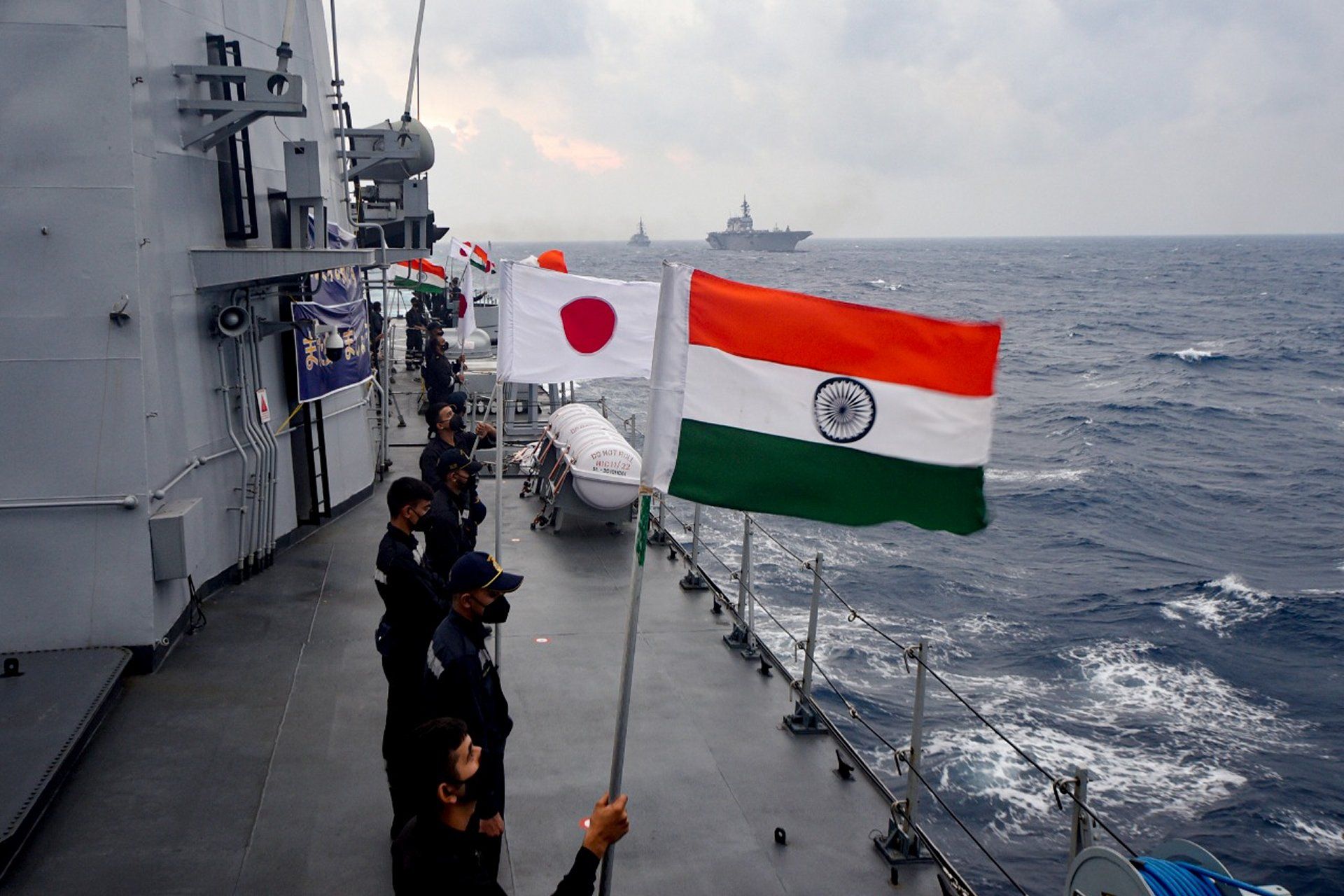Breaking News
Japan and India advance UNICORN technology transfer at 2+2 ministerial meeting.
According to information published by the Japanese government on August 20, 2024, the third Japan-India 2+2 Foreign and Defence Ministerial Meeting concluded with both nations reaffirming their commitment to strengthening defense cooperation.
Follow Army Recognition on Google News at this link

Indian and Japanese Navies at the sixth edition of the Japan India Maritime Exercise in 2022. (Picture source: Indian government)
The meeting, which brought together top officials from Japan and India, showcased a series of achievements and outlined future areas of collaboration in defense and security.
During the discussions, the ministers praised the successful completion of the first Joint Service Staff Talks, underscoring the importance of this dialogue in enhancing military-to-military cooperation. They also highlighted significant progress in joint efforts on Unmanned Ground Vehicle (UGV) and robotics technologies.
A notable development from the meeting was the progress made on the transfer of Unified Complex Radio Antenna (UNICORN) technology and related systems. Both sides agreed on the importance of accelerating the signing of related arrangements, which is expected to enhance communication capabilities and interoperability between the Japanese and Indian armed forces.
Comments
The agreement involves the NORA-50 antenna, known as "UNICORN," which was developed by a consortium of Japanese companies including electronics giant NEC and Yokohama Rubber.
This export marks only the second instance of Japan selling defense equipment abroad since it lifted a decades-long ban on such transfers in 2014. The first occurred in 2022, when radar systems were shipped to the Philippines. By supplying the UNICORN antennas to India, Japan aims to strengthen security ties with New Delhi and enhance collective deterrence in the Indo-Pacific region.
The UNICORN antennas, currently used by Japan's Maritime Self-Defense Force on FFM escort vessels, are distinguished by their stealth design, which houses multiple antennas within a horn-shaped structure. This innovative configuration enables the system to detect missile and drone movements by sensing radio waves over a vast area.
The deal also aligns with Japan's broader strategic objectives to reduce India's heavy reliance on Russian defense equipment. Historically, India has sourced a majority of its military hardware from Russia.
However, Tokyo hopes this agreement will encourage New Delhi to diversify its defense procurement, particularly in light of India's ongoing efforts to develop more indigenous defense capabilities and forge new partnerships with countries such as the United States, France, and Israel.


























